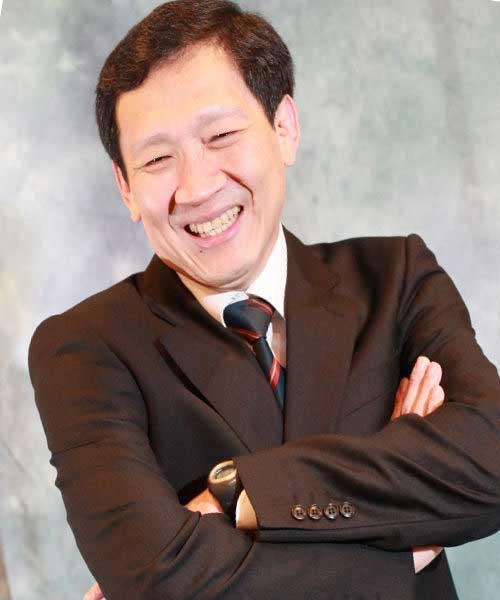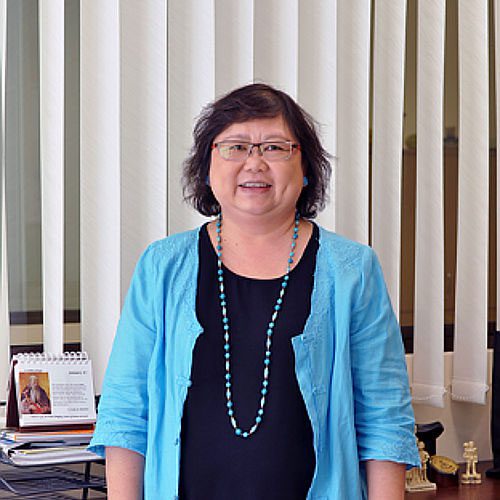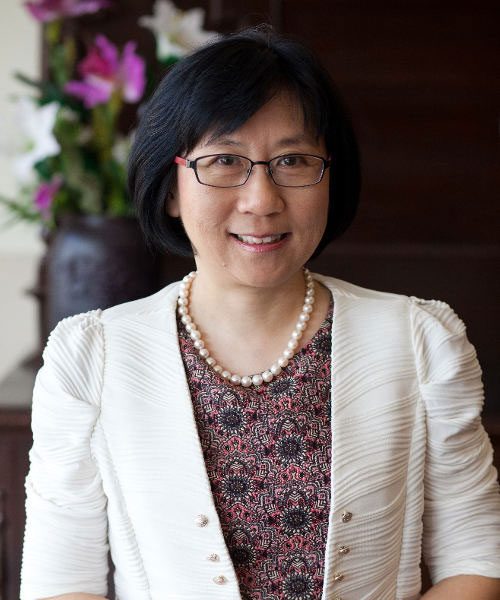Laying the Foundation for the Future
If the rise of the new-age entrepreneurs like Bill Gates, Mark Zuckerberg, Jack Ma and now Singapore’s very own Rebekah Lin, is anything to go by, the next generation is going to completely redefine the non-profit landscape of the future.
Young people today (children, teenagers and young adults) are increasingly aware of their responsibility towards creating a sustainable society and unafraid of trying their hand at fresh ways of giving, new channels of outreach, and harnessing the power of masses through the use of technology.
Centre for Non-Profit Leadership (CNPL) spoke to a panel of non-profit thought-leaders who work with youth, to understand their vision of the future of NPO leadership and the role youth can play in leading tomorrow’s non-profits.
Here are some very clear themes that emerged from our discussion.
Samuel Yeak, President, Metropolitan Young Men’s Christian Association (MYMCA)

On Involving youth in Non-Profit Leadership – Creating Ownership
Samuel Yeak Chair of MYMCA, an organisation that most of us know to be deeply engaged with youth, makes no claim to be a youth expert.
It has been an interesting journey for us” he says. “To engage them, we had to bring in people who can understand and think like the youths (MYMCA brought in a youth expert), speak their lingo, hang out with them, gain their trust and become their confidante.” To him it is holding the interest of youth that is the bottom line. The solution is “to empower them to think for themselves, decide on what they want to do, provide them resources if they needed those resources and ultimately take ownership of their own projects.” With only “gentle nudges” for direction.
On the key qualities that leaders of tomorrow must possess – Being “FAT”
Samuel feels that “All leaders, present or future must possess the heart to serve before they can lead…if you don’t know how to follow, you can’t truly lead”. “I look for those who are FAT – faithful, available and teachable. Faithful people and those who can be trusted to get the job done. They will stick doggedly to the task at hand, overcoming obstacles. There are many talented people out there but if they are not available, it is very hard to use them in your organisation.” This is especially true in the Singaporean context, “with many things competing for our time. Availability reflects commitment to your cause – if you believe it is important, you will make time for it.” Finally he believes “teachability will make a truly great leader because none of us are perfect and will always make mistakes. What is important is having the humility to learn from our mistakes.”
Mamie Cheong, Chief Executive Officer, Enactus (Singapore)

On Involving youth in Non-Profit Leadership – Connecting at an early age
Mamie’s extensive experience working with college students in Singapore leads her to believe that the start should always be to understand and connect with the youth, “To view the world through their eyes – and understand what makes them tick, their ideals and passion.”
She feels that “Providing them with the opportunity to learn and grow in a safe environment, with mentorship and guidance, whether in a one-on-one or one-to-many framework will help nurture them.”
“Developing a culture of giving and volunteering amongst youth really starts with exposure from young – and is rooted in values and mindsets. Schools are already giving opportunities to their students which begins at the primary level. The challenge is in structuring these activities that would be meaningful to both the students and community.”
On the key qualities that leaders of tomorrow must possess – Perseverance and Conscience
Mamie sums it up as “Courage with a heart – to persevere, to try the new and different whilst maintaining focus on their set goals and at the same time always remembering the impact, direct or indirect, on the lives of others. The only way to identify these leaders is to work closely with them and to see them in action.”
Irene Loi, Executive Director, Boys’ Town

On Involving youth in Non-Profit Leadership – Creating Ambassadors
Irene too believes in the power of ownership. She suggests “empowering youth volunteers to coordinate small-scale events or see a task through from start to finish”, while helping them become an integral part of the team by “giving them their own title”. Mentoring and debriefing are necessary to increase efficiency. To her hands-on exposure to the outcomes and creating a sense of empathy towards the beneficiaries’ needs is also vital. This sense of belonging encourages them to recommend the organisation to peers and creates “supporters, advocates and donors to the cause for years to come.”
On the key qualities that leaders of tomorrow must possess – Empathy
“We depend on volunteers to not only get the work done, but to make a lasting impact for our cause. We cannot do it alone.” says Irene. “We need to be looking for young people who have a passion-filled love that flows out into the volunteer work they are involved in. These young leaders recognize that their work is all about serving others. They genuinely desire to connect with people on a deeper level that allows them to understand the world of those they are reaching out to, and see potential in those they serve as well as serve alongside.”
Tuminah Sapawi, Chief Executive Officer, Yayasan Medaki

On Involving youth in Non-Profit Leadership – Respecting Individuality
According to Tuminah, youth comprises a large and very diverse group from school children to young parents, with each generation being unique. Consequently she does not believe that there can be a one-size fits all approach in engaging with youth and that it is a continuous journey of learning and adapting.
“We do not have a magic formula.” Says she, “However what is key is engagement. Our Community Engagement Unit conducts regular sharing and outreach sessions with both formal and informal groups of youths to see how we at MENDAKI can support their ideas and interests and to channel those to activities that can benefit the community.”
“Based on my experience at MENDAKI, youths need space for them to express themselves and see their ideas realized. They like to be given responsibility and to do more than just be an assistant or aide. They want to run projects, their own projects. We need to support them.”
She cites MENDAKI’s scheme that provides funding for groups to carry out projects. They hope to infuse the spirit of giving by providing them with the experience of helping others.
On the key qualities that leaders of tomorrow must possess – Collaboration
“In today’s “uber-ised” world, a collaborative mindset is one characteristic that I believe a future leader should have. This is assuming that the leader possessed the core characteristic such as governance, integrity, critical and strategic thinking.” Tuminah believes that this way leaders can build highly effective teams by empower employees in matters that are key to the organisation. “At some points, staff need to be part of the decision-making and strategy process. All these will lead to a stronger trust between employer and employee” This inspires greater employee trust, loyalty and ultimately, employee buy-in. Highly effective leaders also understand the importance of relationship development. They encourage bonding between employees to bolster cooperation, collaboration and information sharing. They work at breaking down silos by establishing shared goals and ensuring that people work together to achieve shared goals.”
Mavis Tsoi, President, Young Women’s Christian Association

On Involving youth in Non-Profit Leadership – Communicating Values
Mavis believes that communication is the key to resonating with youth.
“Researches have shown that our current generation of youths are largely motivated by passion for a cause and the knowledge that they are able to make a difference”. Non-profit leaders need to actively communicate their organisation’s mission and values effectively to our youths to help them see the alignment of their own values and aspirations with that of the organisation’s. She suggests tapping the potential of the social media to reach out to your peer networks in sharing inspiring stories of beneficiaries or volunteers who have had life changing encounters and experiences.
On the key qualities that leaders of tomorrow must possess – A Balance of the Future and the Past
Mavis believes that “The non-profit landscape is different from that of a few decades ago. Leaders today need to be bold to make changes and rally support of staff, donors, volunteers and beneficiaries alike. They need to able to anticipate change intuitively, believe in the cause they strive for and chart new directions to meet new needs.”
“An openness to change and accept new ideas is crucial in order to remain relevant, current and sustainable.”
“Leaders of the future should exhibit a forward-looking personality and demonstrate an ability to communicate their visions and future possibilities clearly and effectively” Professionally they should have the ability to strategise the new direction without losing the purpose and core values of the organisation that they serve.” Personally she values integrity, honesty and being genuine” as essential qualities.
Sixty years of Leadership Lessons
Ever year the month of Ramadan signifies a time to gather with our loved ones and express gratitude for all that we have been fortunate to have. Thousands of our Muslim friends in Singapore come together in an inspiring demonstration of the kampong-spirit to give back to those in need through donations of zakat-fitra.
Of the entities that have played a part in building Singapore’s vibrant, connected and benevolent Malay-Muslim Community is Persatuan Pemudi Islam Singapura (PPIS), a non-profit which for the more than fifty years has been empowering Muslim women and communities to achieve a future filled with hope, promise and success.
This month we spoke to Mdm. Rahayu Mohamad, President of PPIS (and Educational Consultant by profession) on the key lessons from PPIS’s sixty years of community leadership
Can you tell us about a person or incident which has had a tremendous impact on your journey at the helm of PPIS?

In early 2016, the Board received a letter of resignation from the then Chief Executive. The resignation did not come as a surprise. It was in fact something that had been talked about. Yet, PPIS did not have a candidate ready to fill the gap. As usual, a Chief Executive’s departure from the organisation can be unsettling especially when there is no succession planning in place. The Board did all the necessary, from headhunting, advertising for credible candidates and even looking internally from the senior staff. Since PPIS is a women’s organization, one critical issue in the appointment of the new CEO was gender; it had to be a woman. However, at the time, as the President, what was compelling to me was to ensure stability and continuity of leadership especially when the organisation was rolling out many new initiatives.
While all this was happening, we appointed our Senior Director to cover the CEO duties during the transition period. It was then that I had the realization that we already had what we wanted and that there was in fact no need to look for a replacement. Thus began the journey of consulting, pursuing and lobbying for the potential candidate before the Board, leading to the appointment of our Senior Director as the new CEO. This was a new phase in the history of PPIS, a first man, to be appointed to lead the day-to-day operations running smoothly. I was a break from the tradition of a female CEO. It was timely too, with the global trend of ‘he-for-she’, increasing the involvement of men in issues relating to women.
This incident definitely throws light on the importance of succession planning. Board members need to develop policies addressing succession planning, search and transition guidelines well in advance of a leadership void. As Peter Drucker said, “Management is doing things right; leadership is doing the right things.”
For a non-profit to be successful in the long-term as PPIS has been, its vision must be powerful enough to bind all stakeholders together. As a leader, how do you communicate your vision and values to staff and volunteers?
Dr. John C. Maxwell once said, “Leaders don’t impart vision to make people feel good, but rather to change something.” I believe that mission, vision and values are the defining elements of an organization’s identity from which all actions and programmes evolve. Hence, it is important that these are communicated across the organisation to staff and even to volunteers. However, the goal isn’t to get people to ‘buy-in’ or agree, but more importantly to take ownership in translating the vision and mission into reality.
How do we do it at PPIS?
Leaders need to walk the talk. The best representation of a vision occurs when a leader embodies it. People follow what they see sooner than they follow what they hear. This is what we try to do at PPIS. The Board of directors takes equal responsibilities to share plans with the CEO and key decision-makers and personnel during Board and committee meetings. We field questions and respond to concerns from the ground. At the management level, our CEO, supported by our corporate service, plans quarterly contact time with staff as well as sends out a monthly bulletin to reinforce the organization’s mission and vision.
To communicate vision effectively requires continual reminders to keep it at the top of people’s minds. Unless a leader (at board or management level) actively and continually champions a vision, it can soon be lost with time.
What according to you are the biggest challenges facing non-profit leaders in the short-term future? How do you recommend overcoming them?
Indeed, with Singapore changing social landscape amid challenges such as an ageing population and tapering economic growth, the biggest challenge faced by non-profit leaders is talent attraction and retention.
Today, mission-mindedness and high individual performance largely spearhead the growth of VWOs. With over 450 VWOs in Singapore, PPIS needs to position itself competitively as a desirable organisation of choice in the social sector. This necessitates a sound human capital management planning and strategy.
To enhance the human capital management, PPIS HR Advisory committee is currently looking into the strategic talent management areas such as HR strategy, organizational culture and employee engagement and development. We hope to work with our HR professionals as well as experts amongst our staff and volunteers to gain better understanding of ground issues so that we can plan and forecast the long term organisational needs of PPIS.
Of late, there has been much talk of corporates partnering with and volunteering at NPOs. As somebody who is part of the non-profit world for a long time, do you see value in this? What can for profit and non-profit sectors learn from each other?
Corporate volunteering has recently become the most common way for companies to engage in collaboration with NPOs. I believe it does bring value to NPOs. It may be likely that the concept has grown in popularity as the tangible benefits of employee volunteering become more apparent to charities and companies. For example, it provides with the opportunity to develop staff skills, build teams and bolster the both reputations in the local community. Charities can further diversify their networks of supporters and potential funders through engaging company volunteers. However, as much as it brings benefits, I believe that we also need to consider the cost of involving corporate volunteers in NPOs, especially from the perspective of differences in organizational culture and practices that may lead to conflicts. A balance must be struck, as NPOs staff can feel threatened by the involvement of the volunteers, especially if the staff perceive that some volunteers have more experience or better skills.
In October, PPIS will be organizing its inaugural Family Therapy Conference. The Conference titled: Bridging and Humanifying Family Therapy Practice focuses on the theme of Spirituality and working cross-culturally. This will be a conversation among professionals, experts and practitioners about family therapy practice and most important its connections, networking and bridging across contexts.
The Centre for Non-Profit Leadership (CNPL) works in the areas of non-profit leadership consulting and organisation development support through our programmes and workshops. Find out more about our leadership volunteering opportunities by dropping us a message here.




















